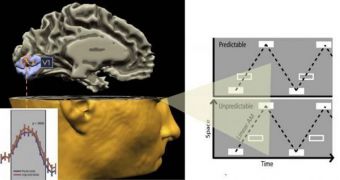The human brain is the most important component of our body, as it is the only organ that enables us to make sense of everything around us. It integrates all the five sense, and more, and allows us to situate ourselves within our environment, find answers to questions, and perceive emotions, among many other things. But the brain's functions are based on certain foundations too, and these basic principles appear to bear a striking similarity to the scientific method, the approach that researchers use to gain new knowledge on all subjects of interest, ScienceDaily reports.
For many centuries, scientists have followed a certain approach to determining new knowledge about our surroundings. This is called the scientific method, and it revolves around two very simple factors – formulate a hypothesis on an event, thing or place, and then find arguments to support the idea. If no proof is found, then the idea is abandoned, and the scientists go back to the drawing board, to develop a new explanation for the same phenomenon. Now, a new scientific collaboration, featuring German researchers from the Max Planck Institute for Brain Research, in Frankfurt, and UK experts from the University of Glasgow, demonstrates in experiments that the human brain takes the same approach to making sense of the world around it.
In this sense, the group has shown that the brain understands predictable images much faster than it does unpredictable ones. In fact, the team says, it would appear that it is the job of the brain to formulate predictions as to what will happen to the external world. For example, imagine going to work each day and seeing one of your colleagues always on the same chair, and always there before you arrive. The brain is used to this, and it takes very little effort for it to understand what is going on. However, if you see your father, or a cousin, on the same chair, then the brain will get jammed. This reaction is natural, as the cortex realizes that it interprets the world around poorly, and that it needs to improve its prediction skills.
This investigation is tremendously important for neuroscience, as it gives researchers an extra way of understanding how the visual cortex is supported by the rest of the brain. But the team reveals that the new study also hints at the fact that visual perception is directly related to the accuracy of predictions that the brain makes of the outside world. If the hypothesis the cortex makes does not come true, then it takes longer for you to process the same image.

 14 DAY TRIAL //
14 DAY TRIAL //